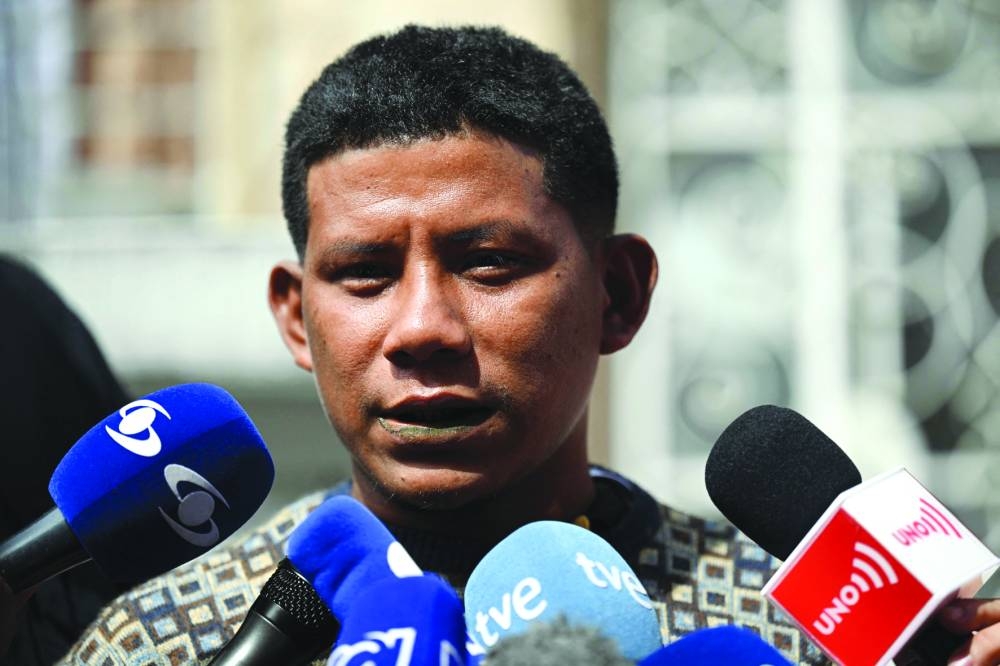Four Indigenous children who were missing for more than five weeks in Colombia’s southern jungle will tell their own story about the ordeal, the father of the two youngest siblings said yesterday.
The children, aged 1 through 13, survived a May 1 plane crash that killed their mother and two other adults and were found on Friday in Caqueta province after weeks of searching by the military and Indigenous communities.
Their ordeal began in the early hours, when the Cessna 206 aircraft carrying seven people and travelling between Araracuara airport in Caqueta and San Jose del Guaviare, a city in Guaviare province, issued a mayday alert due to engine failure.
“They will tell their stories and you will hear them,” said Manuel Ranoque, the father of the 1-year-old and 5-year-old siblings, after visiting them at Bogota’s military hospital.
“It’s not easy to ask them because the children went 40 days without eating well, so I have not been able to get information from the oldest child,” Ranoque told reporters.
Ranoque also told reporters the children’s mother had survived for four days after the crash, an account disputed by another family member who also spoke to journalists. All three adults died in the accident, but Manuel Miller Ranoque said his injured wife survived briefly with their children beside her.
“The one thing that (13-year-old Lesly) has cleared up for me is that, in fact, her mother was alive for four days,” Ranoque told reporters next to the military hospital in Bogota where the children are being cared for.
“Before she died, their mom told them something like, ‘You guys get out of here. You guys are going to see the kind of man your dad is, and he’s going to show you the same kind of great love that I have shown you.’” Magdalena Mucutuy, the children’s mother, was an Indigenous leader herself.
It was in part down to the local knowledge of the children and Indigenous adults involved in the search alongside Colombian troops that the youths were ultimately found alive despite the threats of jaguars and snakes, and relentless downpours which may have prevented them from hearing possible calls from search parties.
“The survival of the children is a sign of the knowledge and relationship with the natural environment that is taught starting in the mother’s womb,” according to the National Organisation of Indigenous Peoples of Colombia.
They also ate seeds, fruits, roots and plants that they identified as edible from their upbringing in the Amazon region, Luis Acosta of the National Indigenous Organisation of Colombia told AFP.
Reuters was not able to independently verify the information.
International
Colombia jungle kids to tell own story, says dad
Dying mother told them of his ‘great love’

Manuel Ranoque, father of the two Indigenous children who were found alive after being lost for 40 days in the Colombian Amazon rainforest following a plane crash, speaks with the press before arriving at the Military Hospital, where the kids were hospitalised, in Bogota on Sunday. (AFP)
